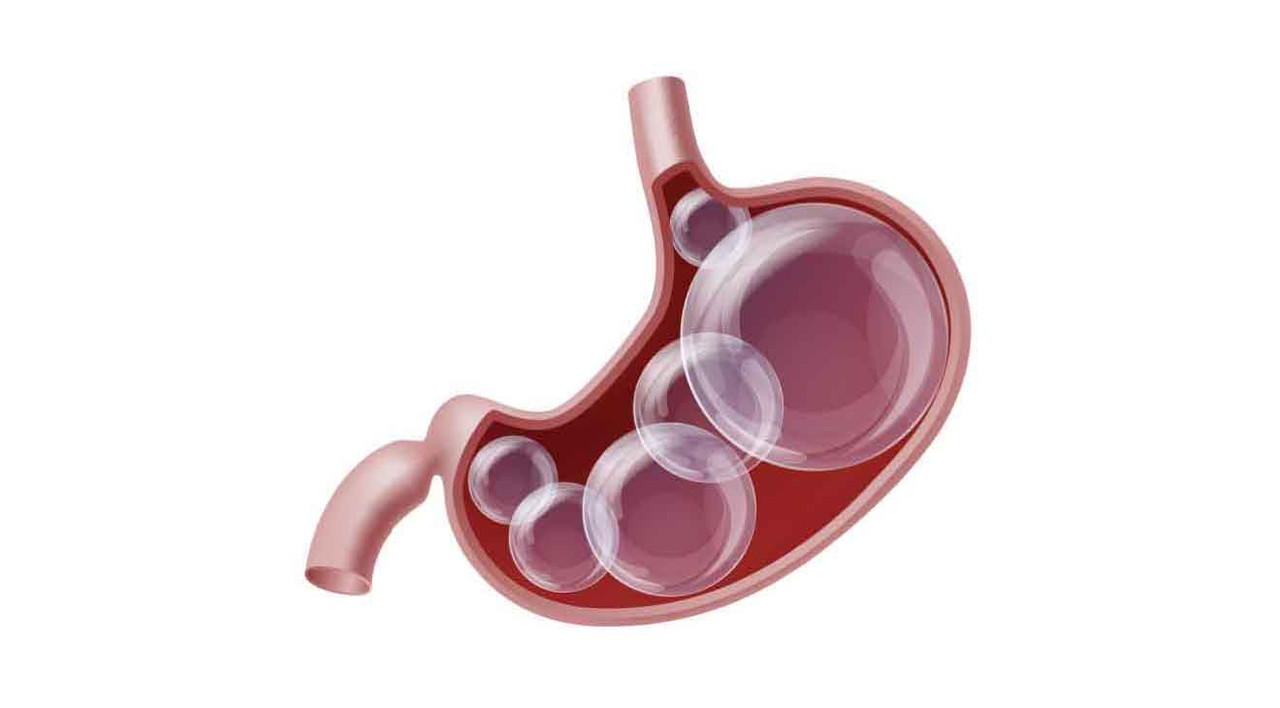Feeding a Dog With a Sensitive Stomach


Dealing with a dog that has diarrhea or an upset stomach isn’t fun, especially if your dog frequently experiences these symptoms. While there are serious conditions that can cause recurrent digestive problems, many dogs simply suffer from sensitive stomachs. Luckily, there are ways to help your dog overcome these symptoms and even steps you can take to change their diet to something that is less likely to cause problems.
Determine If Your Dog Has a Sensitive Stomach
The good news about sensitive stomach is that the signs are easy—albeit unpleasant—to recognize.
What are the signs of digestive problems?
If your dog is suffering from diarrhea, vomiting, or excessive flatulence, they probably have an upset stomach.
If they are acting like their stomach hurts, looking back at their abdomen frequently, or their stomach is very tight, the problem could be more severe and you should talk to your vet immediately.
If your dog has a tight, painful abdomen, it may be a sign of bloat, a deadly condition that progresses very quickly. Furthermore, constipation combined with a painful abdomen may be a sign of obstruction.
The severity of the symptoms.
If your dog has runny stools when you let them out or occasionally vomits after eating, these are mild symptoms likely caused by a sensitive stomach. More frequent vomiting, uncontrollable diarrhea, and loose stools with blood are more serious symptoms and should be evaluated by a vet.
No matter how mild your dog’s symptoms are, if they appear dehydrated, get them to a vet right away.
Assure there are no additional symptoms.
Mild diarrhea and vomiting are rarely serious on their own, but when combined with other symptoms, they may indicate a deeper problem that needs to be evaluated by a vet.
- Neurological symptoms like tremors or seizures may indicate your dog consumed something poisonous such as toxic human food or rat bait.
- Lethargy or pale gums may be a sign of shock, possibly from an internal injury or an allergic reaction.
- Long-term symptoms like a dull coat, lack of energy, or changes in vision, they may be suffering from a nutritional deficit caused by IBD or parasites.
Withhold food to see if symptoms go away.
If your dog’s symptoms seem to be solely related to a sensitive stomach, skip their next few meals and don’t give them any treats.
If the issue was caused by their diet or something they ate, their symptoms should subside within a day.
If symptoms don’t subside or get worse, take your dog to the vet for further diagnosis.
Feed a Bland Diet Until Symptoms Subside
Withhold food for 12-24 hours.
If your pooch still has an upset tummy, withholding food can help the majority of symptoms, like frequent diarrhea and vomiting, go away. But, feeding them their normal diet again after 24 hours will likely cause the symptoms to return. Instead, you should cook a bland diet for your dog to eat until they are completely back to normal.
Boil chicken breast.
Boiled meat is typically very easy for dogs to digest. If you know your dog has a sensitivity to chicken, you can use another meat such as turkey, cod, or plain hamburger.
- Boil the meat in a pot of water until it is cooked all the way through.
- Do not add any oil or seasoning to the meat.
- Slice the cooked meat into small pieces appropriate for your dog’s size.
Add cooked white rice.
Cook the rice according to the package directions (minus any seasoning or oil). Then mix the cooked rice with the chicken or meat at about one part meat for two parts rice.
- Use white rice, not brown rice, because it is easier for your pup to digest.
- Make enough to feed your dog for about a week. You can freeze any extra.
Feed only a small amount at first.
If your dog normally gets a cup of food per meal, feed about a quarter cup of the bland diet. If they tolerate that, you can feed a half cup the next meal. Continue upping the amount until they are eating about their normal serving size.
Continue feeding until symptoms subside.
Do not give your dog any treats or table scraps. The bland diet should be their only food until their stool returns to normal and all other symptoms subside. However, a bland diet is not nutritionally complete and should only be fed for a limited period of time. If your dog’s symptoms have not subsided after a few days, take them to the vet.
Determine What Is Causing the Upset Stomach
Make a list of all the food your dog has eaten.
Most dogs with sensitive stomachs have developed an allergy or sensitivity to something they have eaten in the past.
Therefore, it’s a good idea to think back over what your dog has eaten recently and try to see if there are any potential causes to your dog’s sudden upset stomach.
By writing down every food ingredient they have been exposed to, include only whole-food ingredients not any vitamins or minerals, you can then narrow down which foods are causing issues.
Find a limited ingredient dog food.
Make sure this diet only contains novel ingredients not included on your list. Some dogs may have an allergy to wheat or other grains so the best limited ingredient diets will only have one protein and one carbohydrate. Look for novel meats like rabbit, venison, or kangaroo and novel carbs like sweet potato, quinoa, or barley.
If you’re struggling to find a commercial diet your dog can eat, you can check out this guide.
Transition Your Dog Onto the New Dog Food
Make sure to do this slowly by mixing one part new food to three parts bland diet for the first few days. Then half and half for the next few days. And so on until you are feeding only the new diet. If your dog develops diarrhea, you need to transition more slowly onto the new food.
Feed the new food for at least a month.
This will help you make sure the new diet isn’t causing any digestive issues. If your dog does develop an upset stomach, transition them onto a limited ingredient diet with different ingredients and try again. In addition, you should always remember not to give any treats or table scraps during this time.
Choose one protein from your list.
Chicken, beef, turkey, or salmon work well because they are easy to find and common in commercial dog foods.
Add the protein to the limited ingredient diet.
By adding a small amount of this meat into your dog’s meals you’ll be able to determine if your dog has a sensitivity to it. If they develop any symptoms, remove the meat from their diet and feed only the limited diet until symptoms resolve, and then try a new protein from your list. Feed this new diet for at least three weeks to be sure symptoms won’t resurface.
Choose a second food from your list.
This ingredient can be a protein or a carb.
Add the second ingredient to the diet.
Repeat the above process with this new food from the list and continue feeding this four-ingredient diet for at least three weeks.
Continue adding ingredients one at a time.
Repeat this process with as many ingredients from the list as you want. The more times you do this, the more options you’ll have when it’s time to pick a balanced diet for your pup.
If your dog gets an upset stomach at any point, remove the last added item from their diet and wait to try another until symptoms resolve.
Each time an ingredient is successfully added without causing issues, write it down on your new list of “approved” foods along with the ingredients included in the limited ingredient diet they’ve been eating.
Find a complete and balanced diet.
Once you have a long list of “approved” foods that you know don’t upset your dog’s stomach, you can look for a complete and balanced dog food that includes only those ingredients.
- Make sure the new food has quality real meat ingredients and no fillers.
- Make sure to transition your dog onto the new diet very slowly.
- Look for a commercial diet made for sensitive stomachs as these have fewer ingredients and are easier to digest.
- If the limited ingredient diet you have been using is complete and balanced, you can continue feeding it instead of finding a new diet.
Sensitive Stomachs & Allergies: Dog Feeding Tips
Many dogs with sensitive stomachs benefit from probiotic supplements. You can give your dog specially formulated probiotic and prebiotic supplements that can help to restore the balance of healthy bacteria in the gut, reducing unwanted symptoms and promoting health and well-being.
Pureed pumpkin can help settle an upset stomach if added to kibble or a bland diet. Make sure to get pureed pumpkin, and not pumpkin pie mix, as you don’t want to feed your dog spices.
Dogs with sensitive stomachs should not get treats or table scraps they aren’t used to. Some human foods are dangerous for dogs and can cause illness and even death if they ingest them.
Explore Popular Articles
-
Homemade Flea, Tick & Mosquito Repellent for Dogs: A Natural Recipe for Pet Parents
Jun 13, 2025Beyond the Buzz and Itch: Protecting Your Pup from Mosquitoes, Fleas, and Ticks As pet parents, we w
-
Can My Dog Eat This? A List of Human Foods Dogs Can and Can't Eat
Jun 04, 2025As loving dog owners, we consider our furry companions members of the family. They share our homes,
-
How Long Are Dogs Pregnant - Tips for Care & Safety
May 15, 2025Congratulations! If you’re reading this, your furry friend is likely expecting a litter of pup




